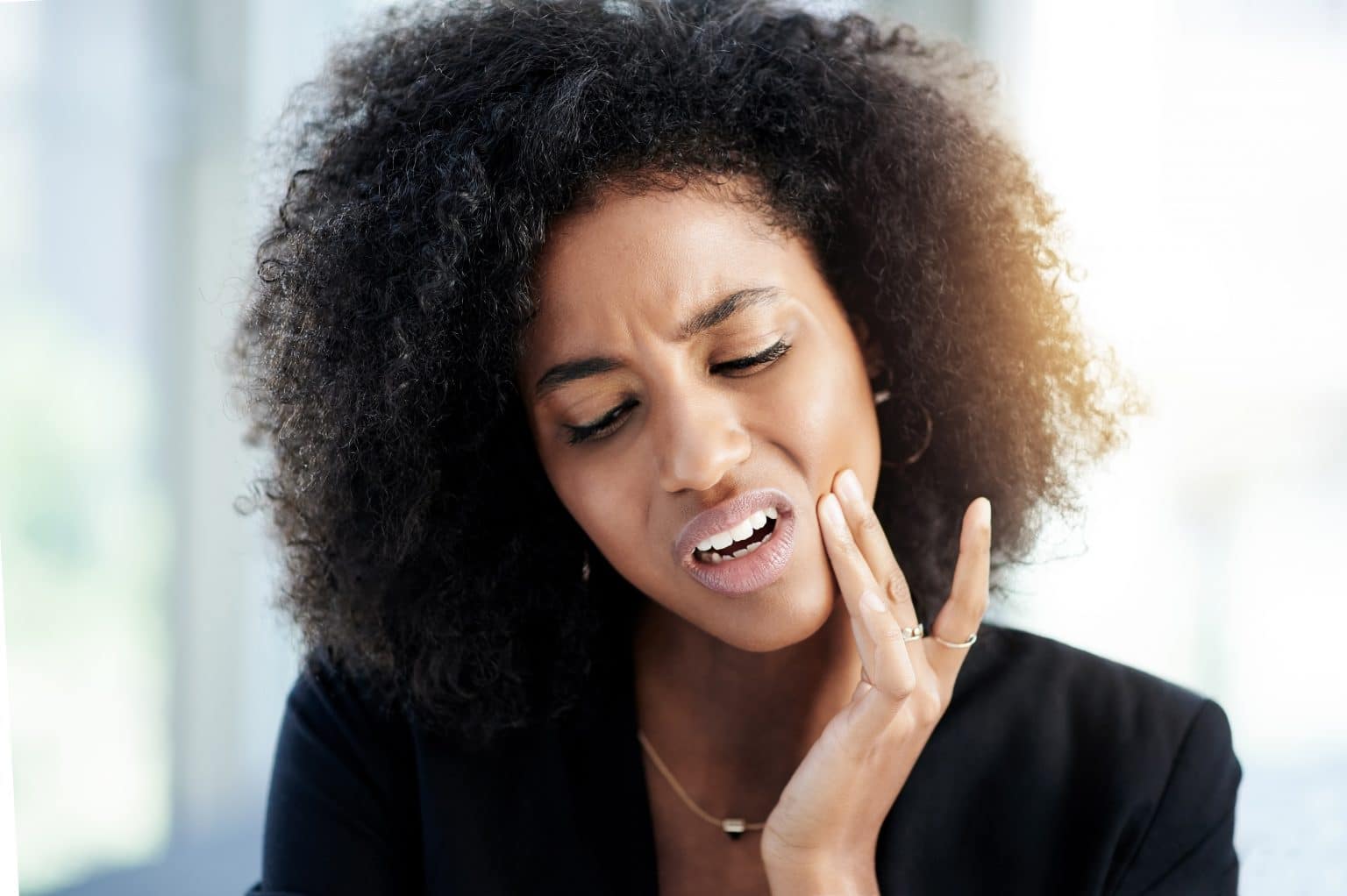
Temporomandibular joint disorders (TMJ) occur because of problems with the jaw joint. The temporomandibular joint is the hinge joint that connects the lower jaw (mandible) to the temporal bone of the skull, which is immediately in front of the ear on each side of your head. This joint allows the jaw to open wide and move back and forth when you chew, talk or yawn.
This disorder involves pain and other issues with the jaw joint. Among jaw pain, ear pain, stiffness, limited mobility and headaches, TMJ disorder can also cause “clicking” sounds in the ears.
Causes of TMJ
There are many cases of TMJ. The cause of each individual case is not always clear, but may involve:
- Grinding or clenching your teeth
- Excessive chewing, such as gum chewing
- Dislocation of the soft cushion or disc between the ball and socket of the joint
- Presence of osteoarthritis or rheumatoid arthritis in the TMJ
- Stress, which can cause a person to tighten facial and jaw muscles or clench the teeth
- Trauma
Symptoms of TMJ
- Ear pain, usually perceived inside the ear
- Pain or tenderness in the face, jaw joint, ear, neck and shoulders
- Limited ability to open the mouth very wide
- Jaws that get “stuck” or “lock” in the open- or closed-mouth position
- Clicking, popping or grating sounds in the jaw joint when opening or closing the mouth
- Difficulty chewing or a sudden uncomfortable bite – as if the upper and lower teeth are not fitting together properly
Conservative Treatment and Prevention of TMJ
- Apply a warm compress to the joint area for five (5) minutes; this may be repeated throughout the day
- Eat soft foods such as yogurt, mashed potatoes, cottage cheese, soup, scrambled eggs, fish, cooked fruits and vegetables, beans and grains
- Cut foods into small pieces to decrease the amount of chewing required
- Take nonsteroidal anti-inflammatory drugs (NSAIDs) such as aspirin or ibuprofen (Advil, Motrin, Aleve) with food to relieve joint inflammation
- Wear a mouthguard. This prevents the upper and lower teeth from coming together, lessening clenching or grinding. Your dentist can also fit you with a mouthguard
- Learn relaxation techniques to help control muscle tension in the jaw
- Try sleeping on your back and avoid sleeping on one side as this can misalign the jaw and place pressure on the jaw joint
- Avoid biting into something with your front teeth
- Try to chew food on both sides rather than on one side
Advanced Treatment Options for TMJ
Often when conservative treatment options do not give the patient the TMJ pain relief they are looking for, a TMJ injection in the office may be a good option for them.
- A small amount of lidocaine and a steroid is given to the patient in the TMJ area
- Most insurances will cover this procedure
- This procedure can give the patient relief for weeks or months but may need to be repeated
- After a TMJ injection is completed, the patient should avoid excessive movement of the jaw, eating hard foods and conservative treatment options should continue to be used.
Call Great Lakes ENT Specialists at (231) 489-8151 for more information or to schedule an appointment.